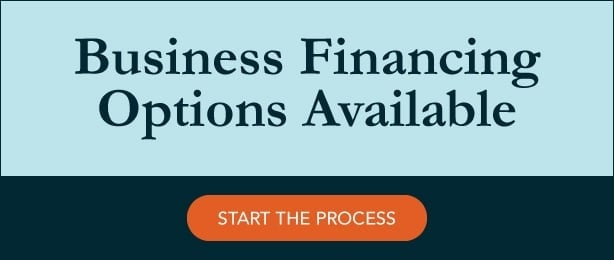November 29, 2021
10 Factors to Consider When Evaluating a Business Loan Offer
These factors can help you determine if it’s the right loan program for your unique financial situation. By taking the time to review the loan offer, you may save money and avoid roadblocks that could hurt your business's future.
In this blog post, we’ll review 10 factors to consider before you accept a small business loan offer. By thoroughly reviewing your offer, you can be confident in your financial decisions moving forward!

What to Consider Prior to Accepting a Business Loan Offer:
1. The Business Lender’s Reputation
Not all business lenders are created equal; some lenders who may seem to offer the best business loans are quite risky. Here are some red flags that you should lookout for when applying for a small business loan from an alternative lender:- The lender doesn’t require a credit score check or have a minimum credit score requirement.
- The lender lacks a physical address and doesn’t have a professional website.
- They hides their loan fees, making it unclear how much their financing options will cost your business.
- The sales rep pressures you to accept the business loan offer immediately.

2. Loan Type
Like personal loans, there are many types of small business loans on the market. These loan options include:- Traditional term loans: These loans come with set amounts and terms.
- Business lines of credit: If you take out a line of credit, you'll have a set funding amount that you can borrow against and repay as needed.
- Equipment financing: If you need financing for equipment, an equipment loan will likely fit your needs.
- Merchant cash advance: Business owners that accept frequent credit card payments can receive lump sum financing in the form of a cash advance. Instead of set repayment terms, you'll remit the advance based on the credit card transactions you have at the time.
- Business credit cards: Although many business owners have credit cards, you must avoid overspending and pay off your balance each month.
- Invoice factoring: If you have outstanding invoices, you can sell them to a factoring company. They'll provide you with funding, but you'll be charged a factoring fee for their services. Then, they'll be in charge of getting customers to pay off their outstanding invoices. f
- Small Business Administration (SBA) loans: If you can't qualify for a traditional bank loan, you may qualify for financing from the SBA.
3. Collateral Requirements
Some business financing lenders offer secured loans, which means in order to qualify for a business loan, you’ll have to back the loan with collateral. Therefore, in the event that you default on your loan, the lender can seize your collateral as a result. If your business loan offer requires you to secure the loan with collateral, consider whether you want to risk losing an expensive asset. If not, an unsecured loan may be the best funding option for you.4. Loan Repayment Terms
Take a close look at the repayment terms on your loan offer. Ask yourself whether the monthly payment fits comfortably with your budget. If you think it will be difficult to afford the payments or you’re worried about missing payment deadlines, look elsewhere for a business loan product. Late and missed payments as well as default can lead to financial stress and take a serious toll on your credit.5. Payment Process
The payment process is just as important as the repayment terms. Make sure you understand the lender’s requested payment process. Will you pay back your loan via weekly payments, monthly payments, or bi-monthly payments? You should also find out how you’ll make the payments. If the business loan lender requires automatic withdrawals and you don’t feel comfortable with that, you may want to pursue a different business loan offer.6. Borrowing Amount
Just because you receive an offer for a certain loan amount, that doesn’t mean you should accept it. In some cases, you may receive a loan amount offer that won't cover your funding needs. However, you should also avoid taking out too much money, as it may be challenging to repay the loan responsibly. Once you determine how you’ll utilize the funds, you should decide whether it’s enough money, too little, or too much. If it’s not enough to accomplish your goals or you believe you’re overextending yourself, find a loan with a different borrowing amount.7. Interest Rates
The interest rate you lock in will determine the overall cost of your small business loan. Of course, the lower the interest rate, the more money you’ll save and the more affordable your loan will be. Do the math and figure out how much your loan will cost with the interest rate you receive. Also, look at the rates others may lend you based on your personal credit score. You don’t have to settle for a sky-high interest rate, especially if you have decent credit and have been in business for a while.8. Loan Fees
In a perfect world, small business loan fees wouldn’t exist, making them more affordable for the borrower. The reality is that even what seems like the best business loan may come with exorbitant fees, including:- Origination fees
- Processing fees
- Non sufficient funds fees
- Late fees